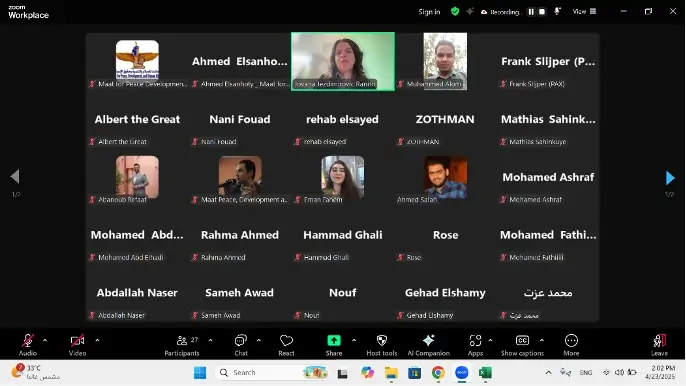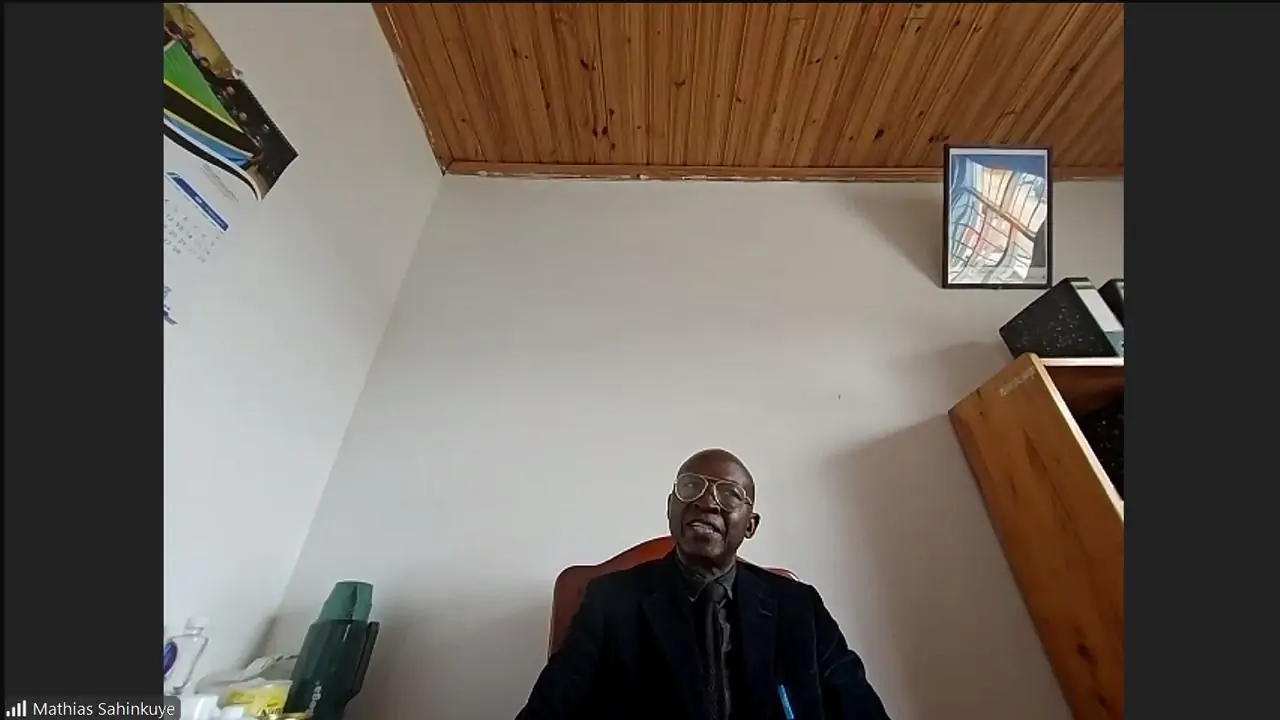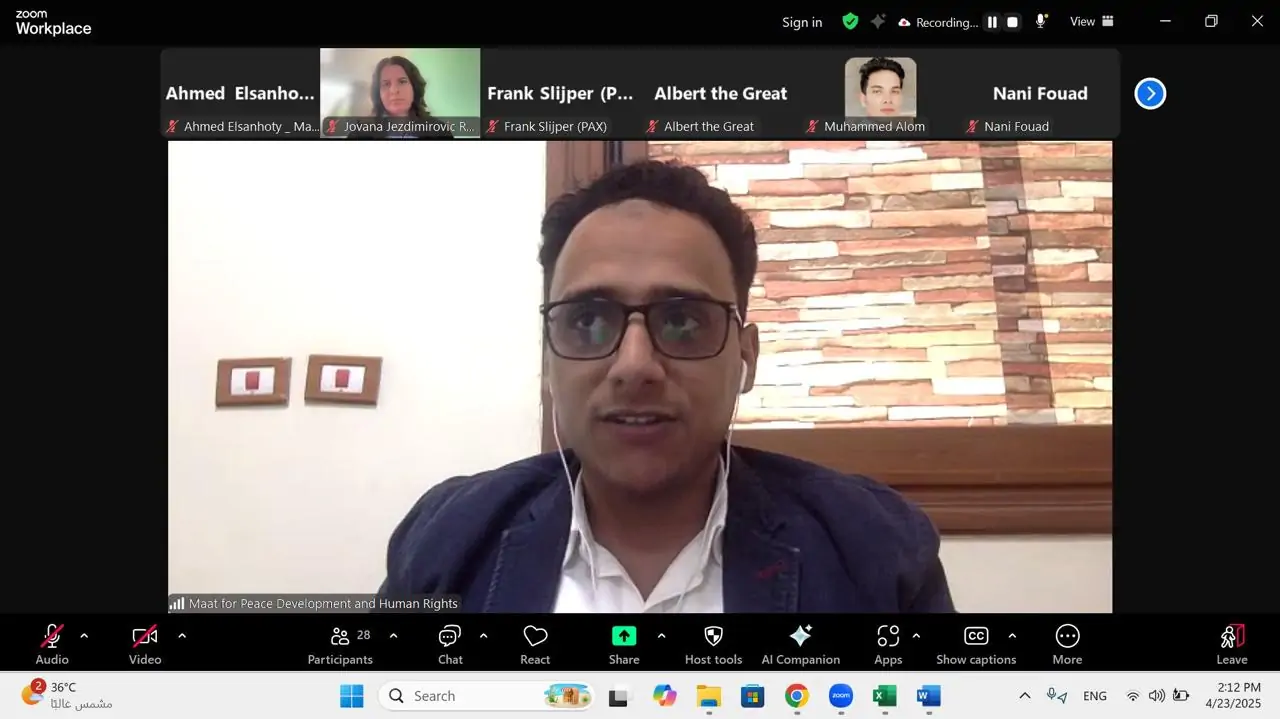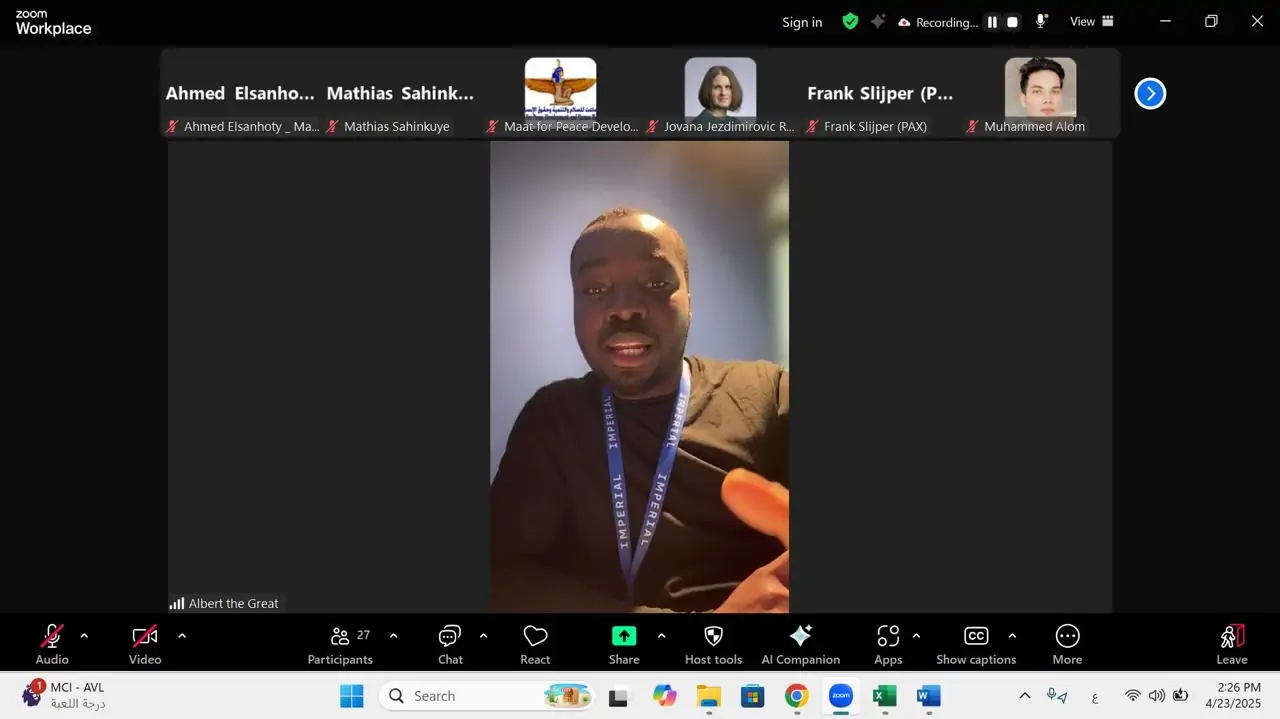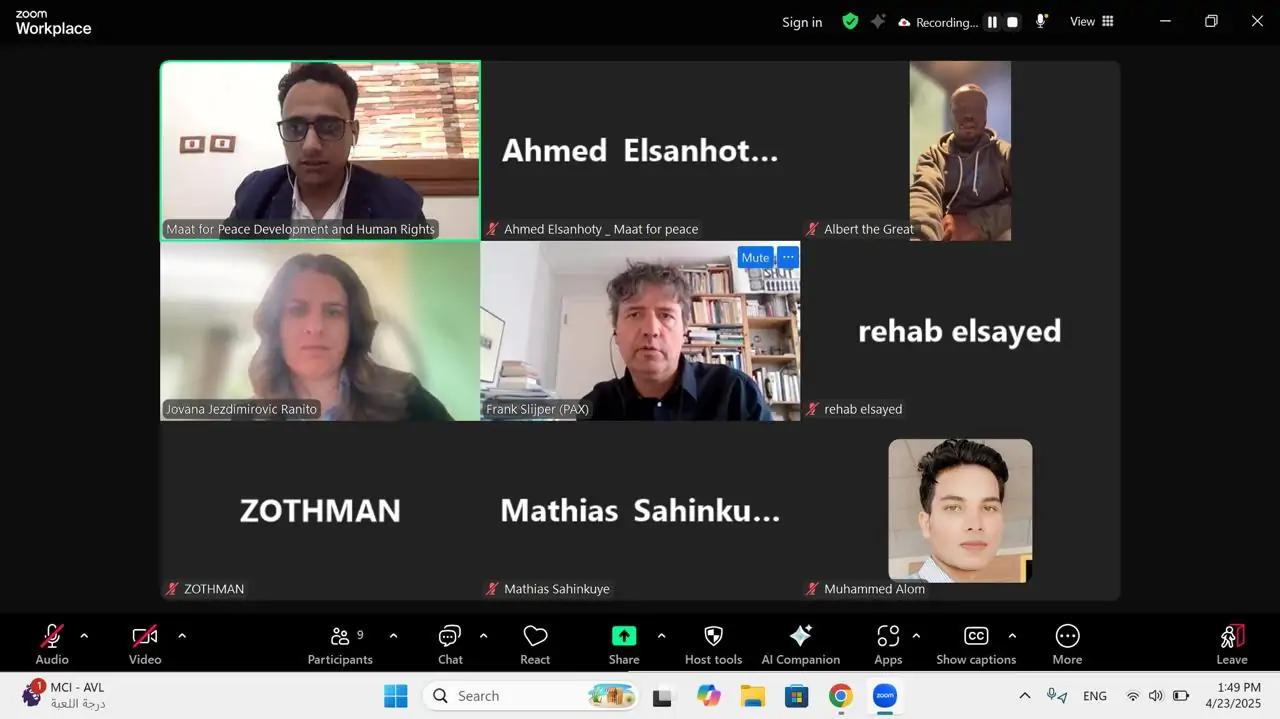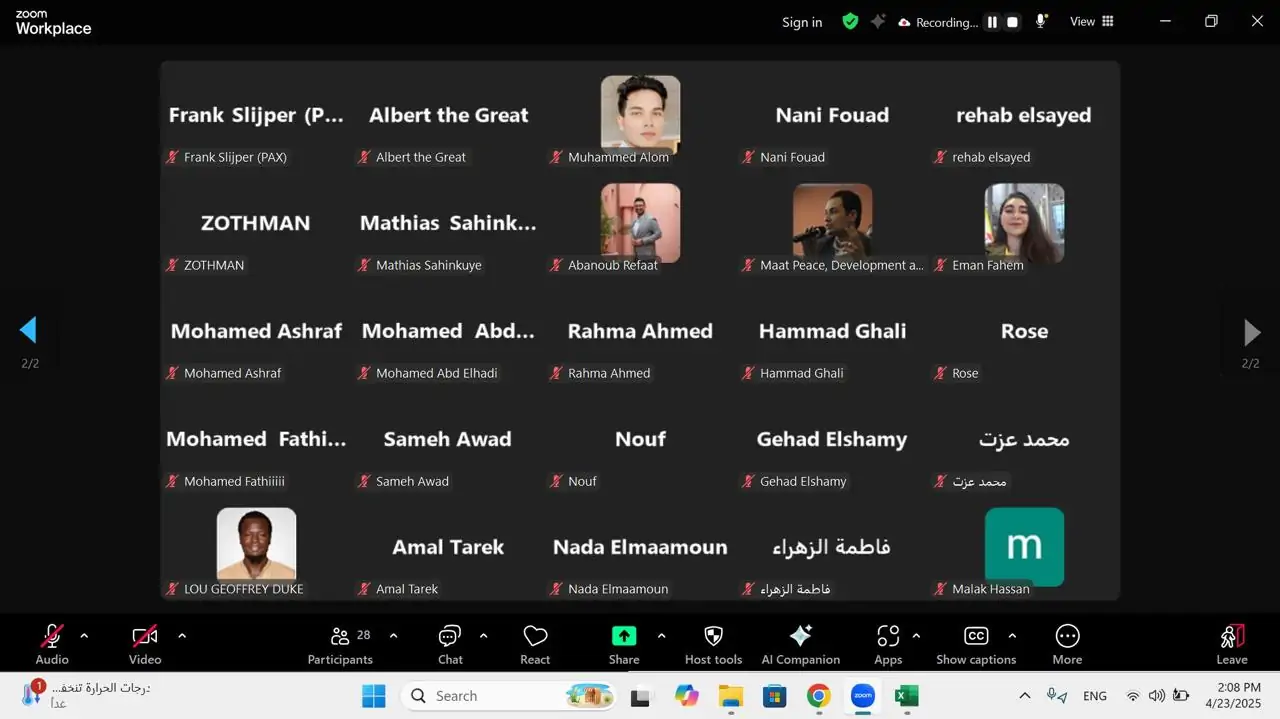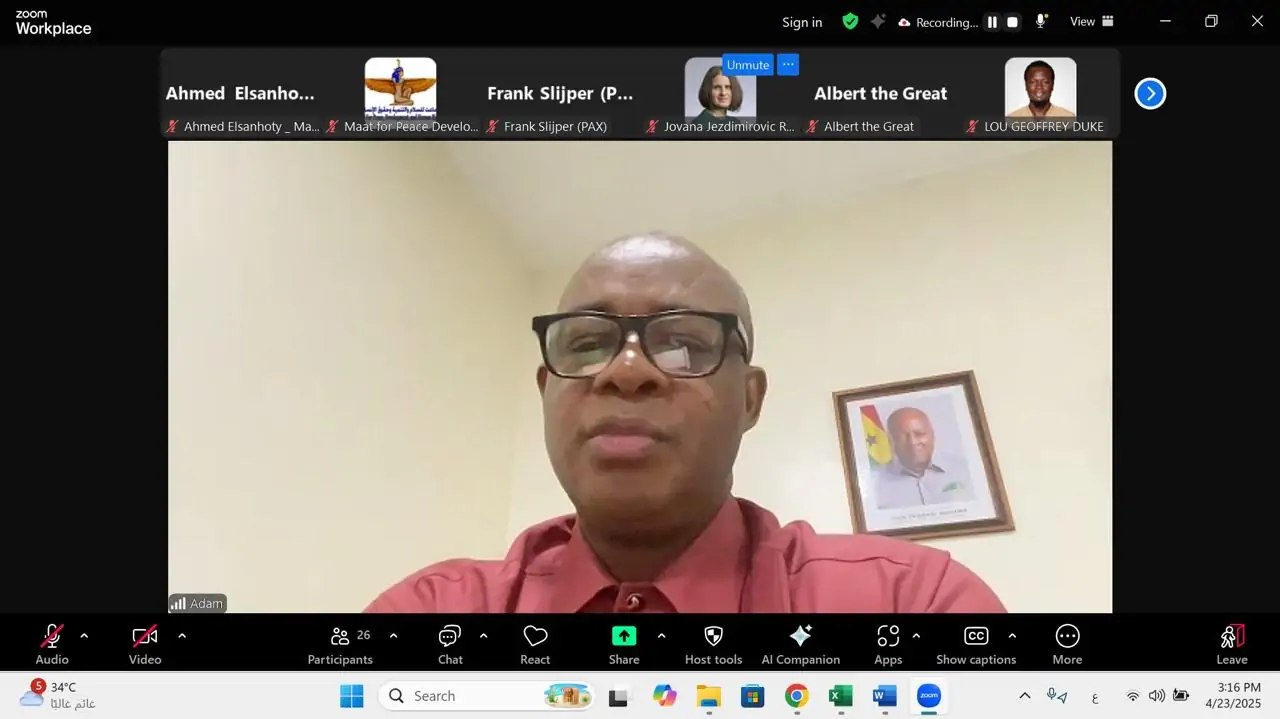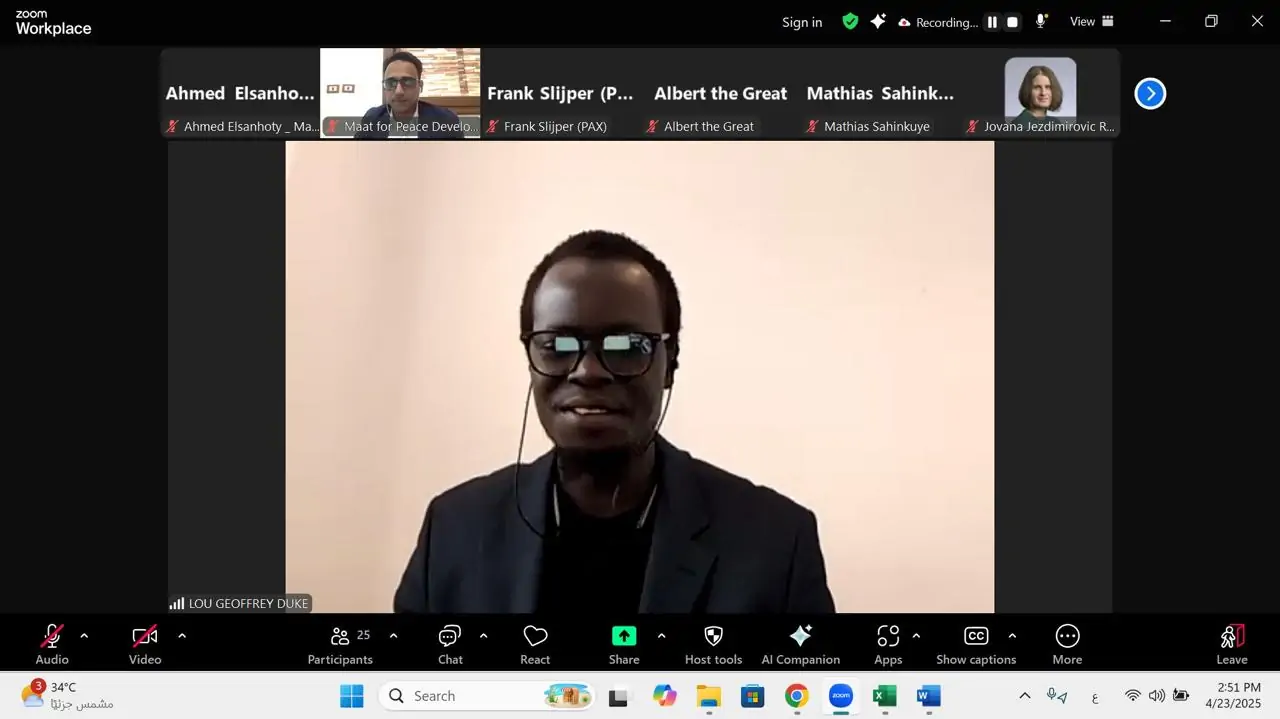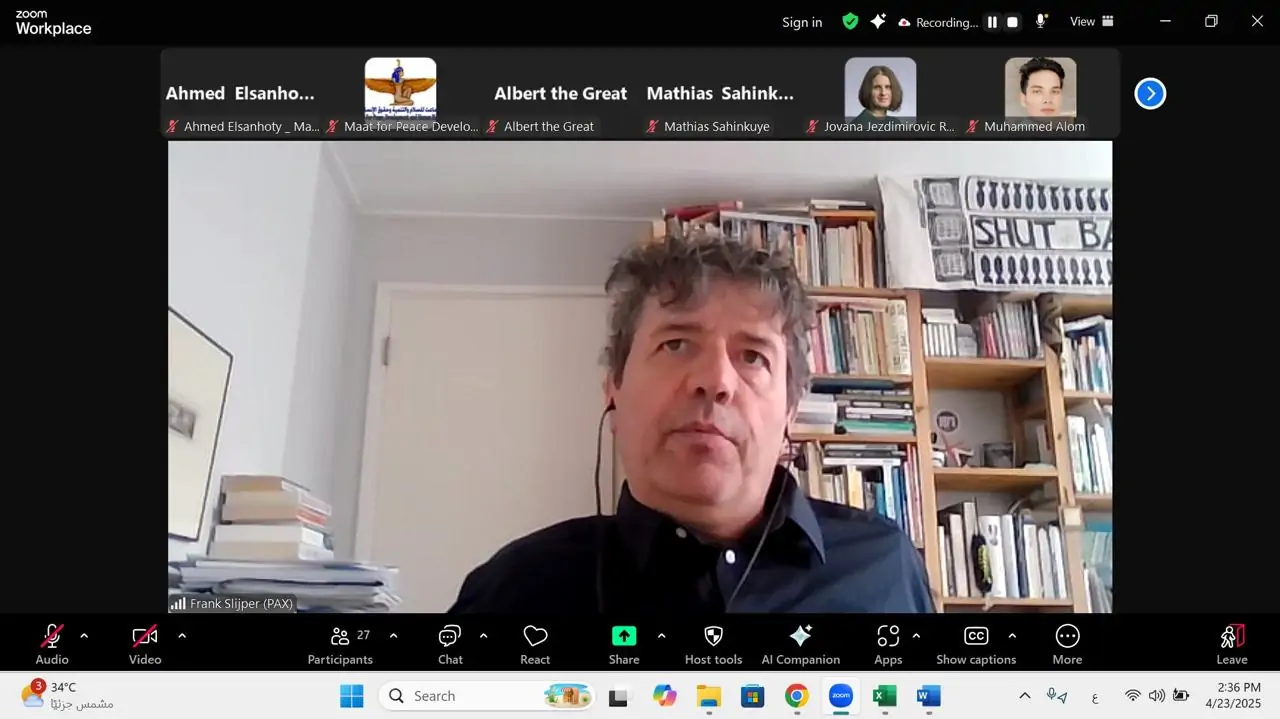On the second anniversary of the outbreak of civil war in Sudan, Maat for Peace, Development, and Human Rights organized a discussion titled "Flow of Arms to Sudan Fuels Violations and Serious Human Rights Abuses." The session focused on the worsening violations of international humanitarian law in Sudan due to the continuous influx of arms and military equipment to conflict parties and reviewed the extent of states' compliance with the arms embargo imposed on Darfur. The discussion featured participation from several experts and specialists in international humanitarian law and arms trade.
Participants emphasized the need to hold accountable countries involved in exporting arms to Sudan and to support efforts to document crimes and achieve justice for the Sudanese people. They called for international actions to prevent further tragedies in the country.
Dr. Giovana Ranito, Jovana Ranito, Chair-Rapporteur of the Working Group on the use of mercenaries, discussed the relationship between mercenaries, arms trafficking, and armed conflicts. She highlighted that mercenary activities prolong conflicts, exacerbate humanitarian conditions, and lead to human rights violations. She stressed the critical role states play in using and arming mercenaries, emphasizing the need to consider the regional context beyond individual conflict areas.
Professor Mathias Sahinkuye, an international law professor and director of programs at African Institute of International Law, underscored the devastating impact of the ongoing flow of arms into Sudan, spotlighting the international community's responsibility to enforce the embargo and fulfill legal obligations. He called for stricter implementation of the arms embargo, accountability for violators, and support for documenting crimes and achieving justice for the Sudanese people, stressing that peace requires not only the absence of war but also the presence of justice.
Albert Bimbeh, a researcher on African political affairs, provided an overview of Arms Trade Treaty (ATT) and its significance in the Sudanese conflict. He highlighted five structural weaknesses that limit the treaty's effectiveness in Sudan, including the limited membership of major arms suppliers, inconsistencies in risk assessment practices, weak post-shipment verification, and challenges in preventing diversion of arms. He suggested several ways to enhance the treaty's application, such as developing standardized risk assessment methodologies, strengthening transshipment controls, and integrating the treaty's implementation with UN peacekeeping missions.
Frank Slijper, an Arms Trade Project Leader at PAX , highlighted the challenges of addressing arms transfers within the context of ATT, particularly regarding Sudan. He emphasized the need for more open discussions about controversial transfers and the connection between arms transfers and gender-based violence. He noted that many weapons reaching Sudan do so through illicit brokering and third countries, underscoring the importance of global participation in ATT to make it more effective in preventing conflicts and violence.
Geoffrey Duke, a fellow at Africa Leadership Centre Fellowship for African Scholars in Peace, Security, and Development, stressed the necessity of international action to impose an arms embargo on Sudan to protect civilians while seeking to hold perpetrators accountable. He emphasized the need for collaboration between UN and the African Union to implement these measures, learning from previous failures of the arms embargo in Darfur.
Dr. Adam Bonaa, Executive Secretary of Ghana National Commission on Small Arms and Light Weapons, discussed the challenges preventing arms flow into conflict areas such as Sudan. He noted that many weapons originate from Europe via complex procurement systems, circumventing international regulations and embargoes, highlighting the need for international cooperation to implement arms reduction treaties and UN sanctions.
At the end of the discussion, Mohamed Mokhtar, director of International Humanitarian Law Unit at Maat, called for pressure on states to comply with Arms Trade Treaty and urged the African Union and UN Security Council to take immediate action to prevent further tragedies in Sudan.
shortlink: https://maatpeace.org/en/?p=44493


